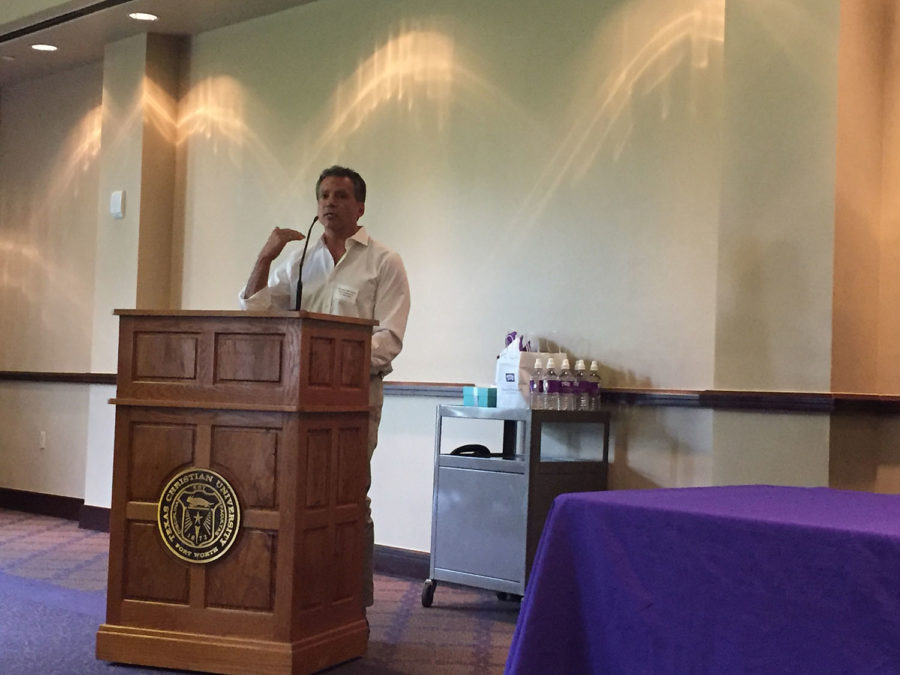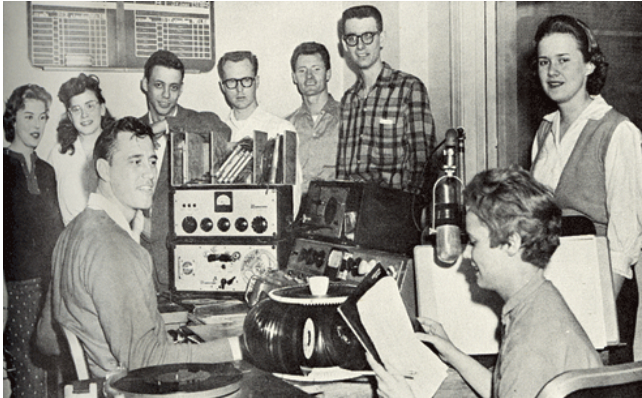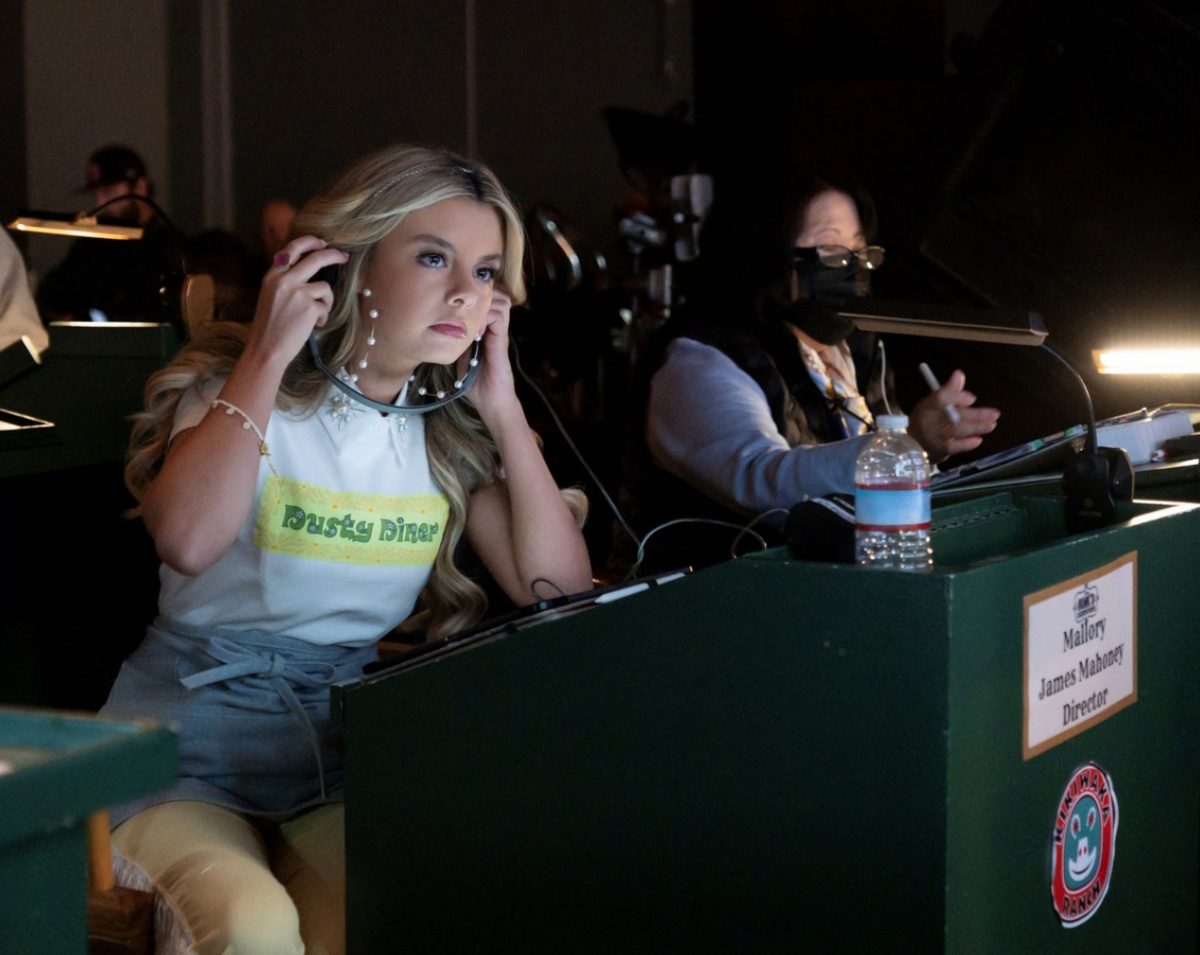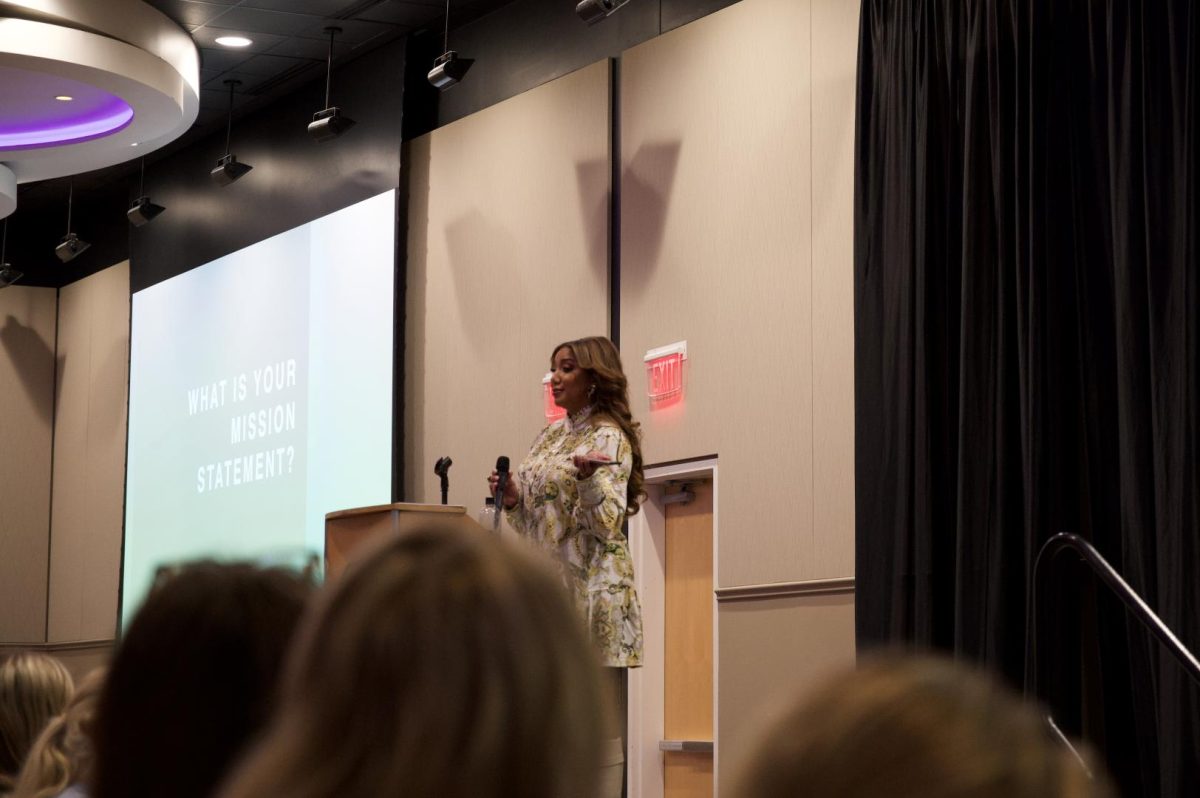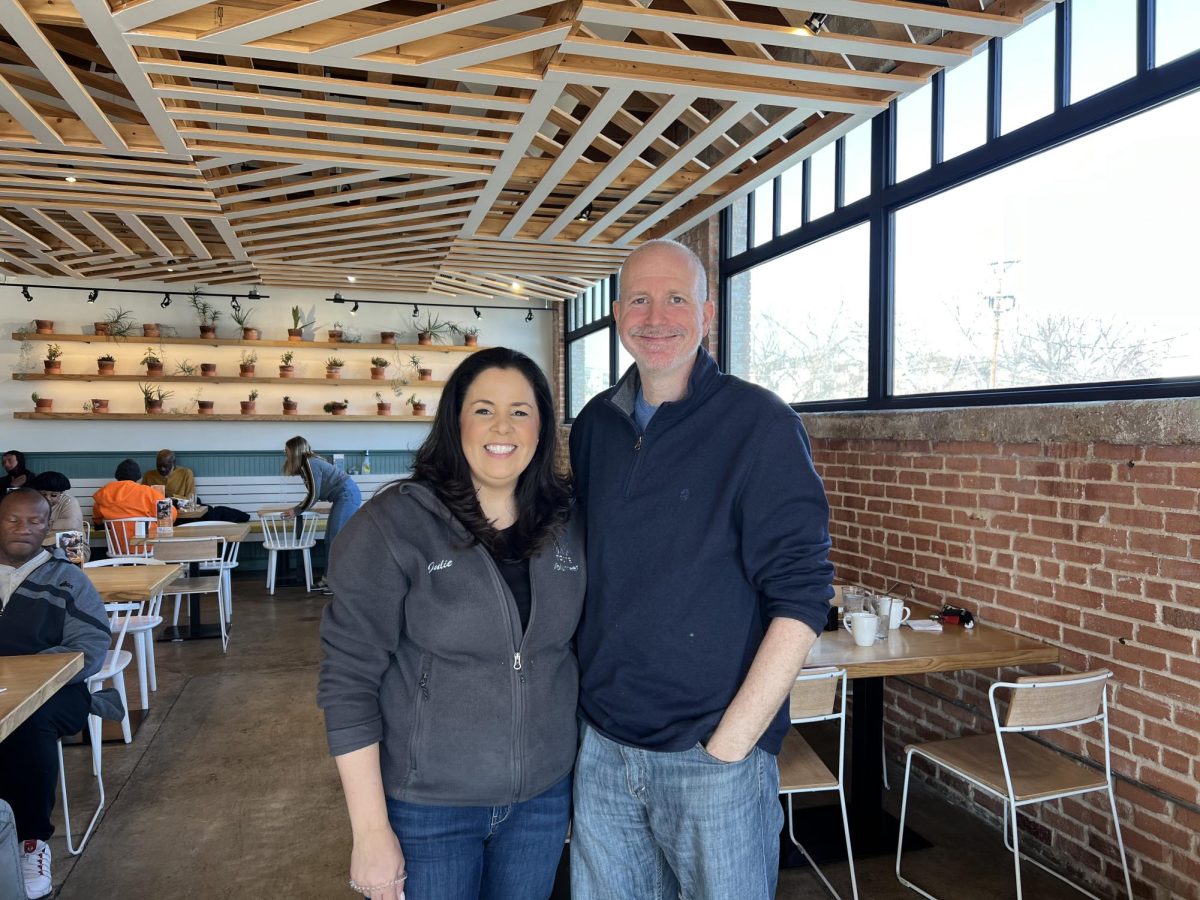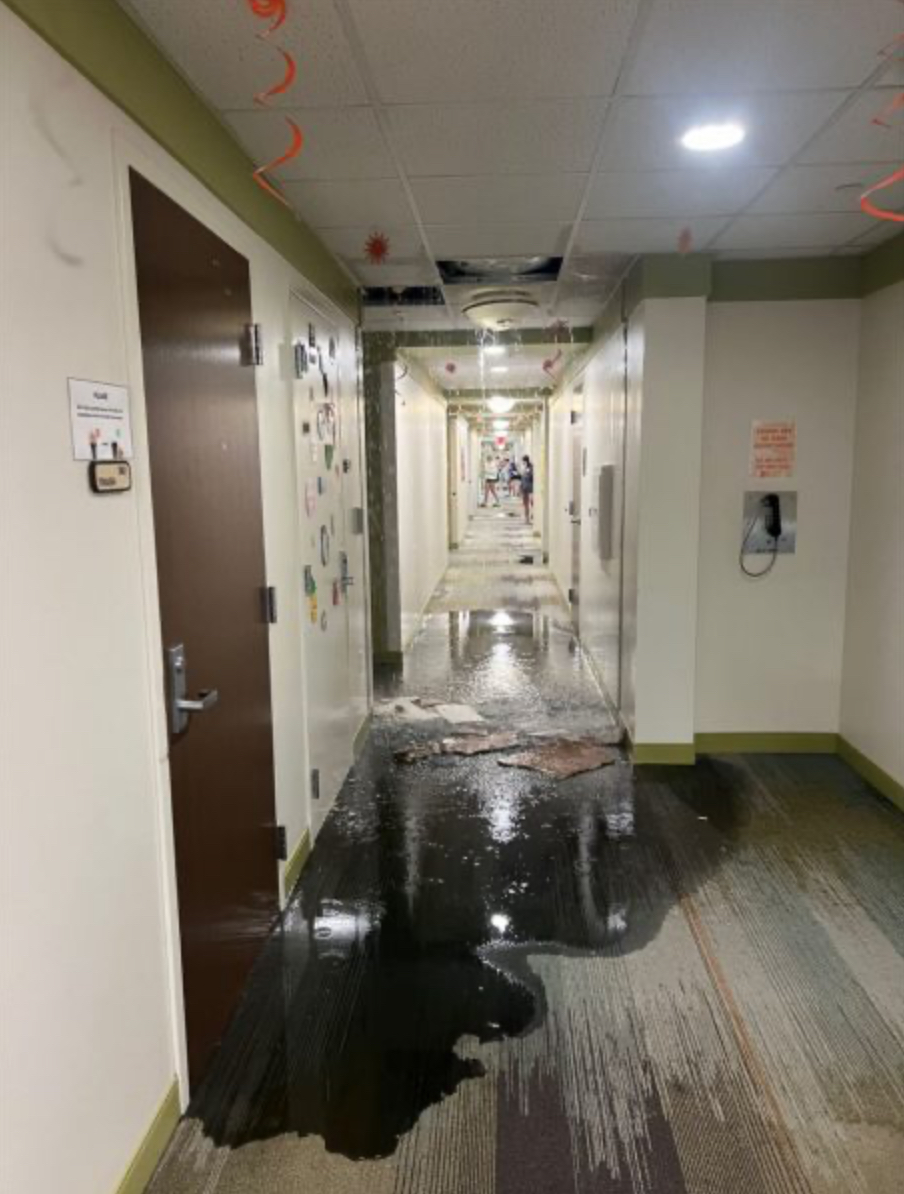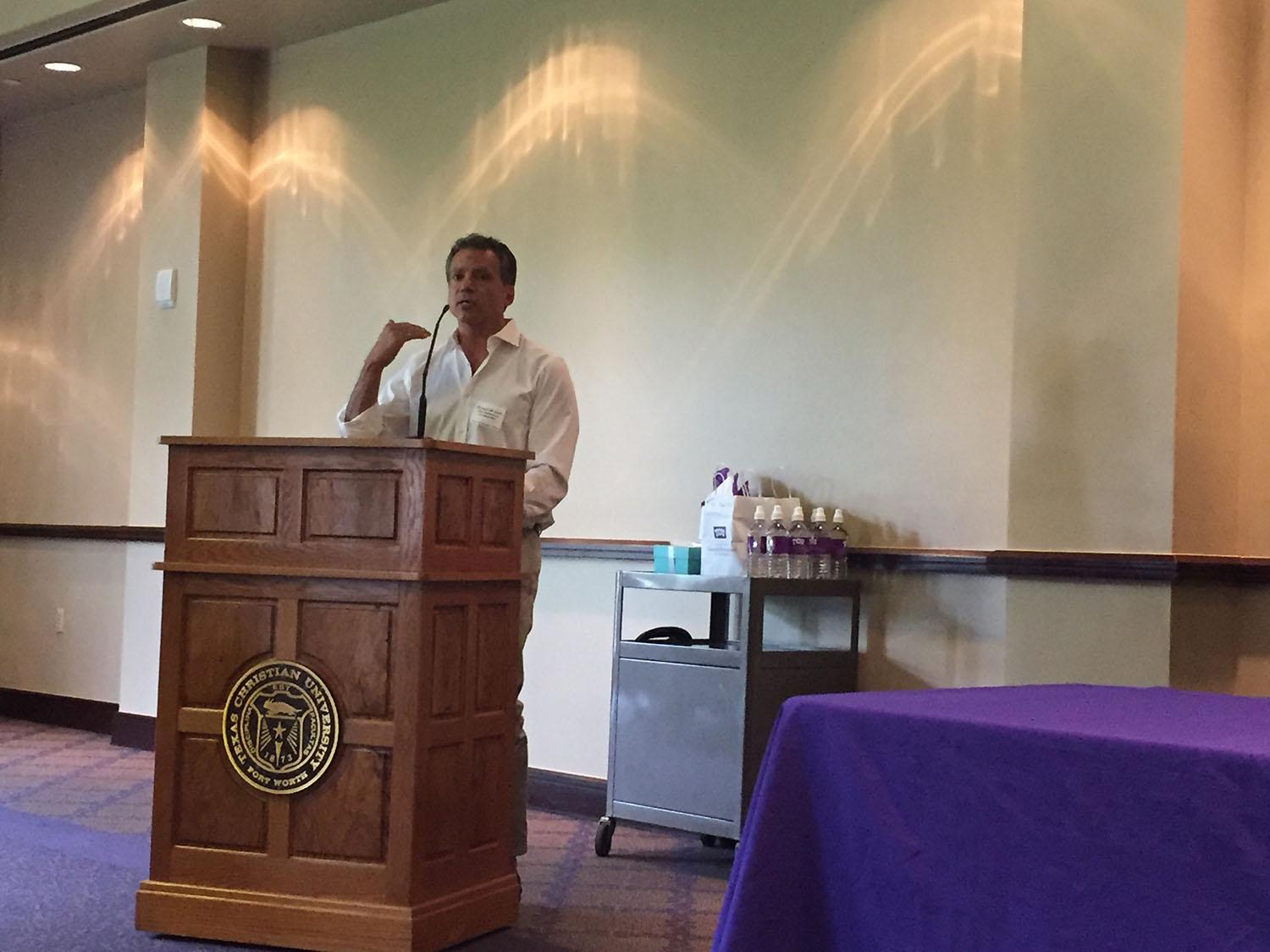
Experts in the media industry stressed the importance of one key thing that can help students navigate the path towards a successful career in the media: be authentic.
Tyler Mount, a Broadway social influencer and blogger for Playbill, said authenticity was vital for him while trying to be optimistic at the start of his career.
“Person XYZ doesn’t define my career or my happiness,” Mount said. “Sticking with it and being true to who you are did.”
The “Careers in Media” event held Friday, organized by the Film-TV-Digital Media department, the Center for Career and Professional Development and the Fort Worth Film Commission featured panelists from different aspects of the media industry including writers, filmmakers, influencers, festival directors and film academics.
The event’s keynote speaker was Michael De Luca, long-time film producer with credits such as “The Social Network,” “Moneyball,” “Captain Phillips,” the “Fifty Shades” franchise and the 89th and 90th Academy Awards live ceremony.
De Luca talked about his decades-long career and how much of his inspiration came from constantly watching movies at his neighborhood theater while growing up in New York City.
On authenticity, De Luca spoke about the creative process that takes place in film studios.
“The worst thing you can do in the market is be derivative,” De Luca said. “You’re not being true to yourself.”
While the film industry seems to be more interested in making blockbuster movies, De Luca said it was important to remember the storytelling.
“We are always telling a story, repackaging reality and looking for dramatic structure,” De Luca said. “Studios still could make good movies for adults, not just tent poles. The only way to compete is to be the ‘other.’”
On storytelling, Emily Gipson, co-executive director and founder of ATX Television Festival, said its power was “phenomenal” during the Festival Directors panel.
Gipson co-created the television-centered festival to break the exclusivity of film festivals. TV festivals had been an unexplored niche and her event became a place where fans could come together.
“I like the community it creates and how discussions form from common interests,” Gipson said.
For students looking for a different route, the scholars’ panel featured three professors who preferred to study media, film criticism and history rather than film production. When asked their favorite course they got to design, Dr. Kristen Warner, casting professor at the University of Alabama, talked about a film festival course she created.
“It’s a course about how film festivals work, the jobs involved,” Warner said. “Students get to attend Sundance and Telluride festivals and make connections with people in the industry.”
This was the third “Careers in Media” event produced by FTDM and the Career Center. FTDM professor Dr. Colin Tait explained that this event was designed to show the different aspects of the industry.
“There was a need for our students to really understand what the media industry might look like from a variety of angles,” Tait said. “Making sure that they know all the options for them and often can be in a room with these people is very important.”
Tait hopes students take away that there is not a “right way” to make it in the industry.
“Giving students examples of people who have made it in the industry, from the mailroom to the president of a company, or who have done things differently is so important because I know how much pressure there is on young people, and certainly our students, to have the right answer,” Tait said. “I want to provide them with as much information about what those answers could be rather than what they are.”

